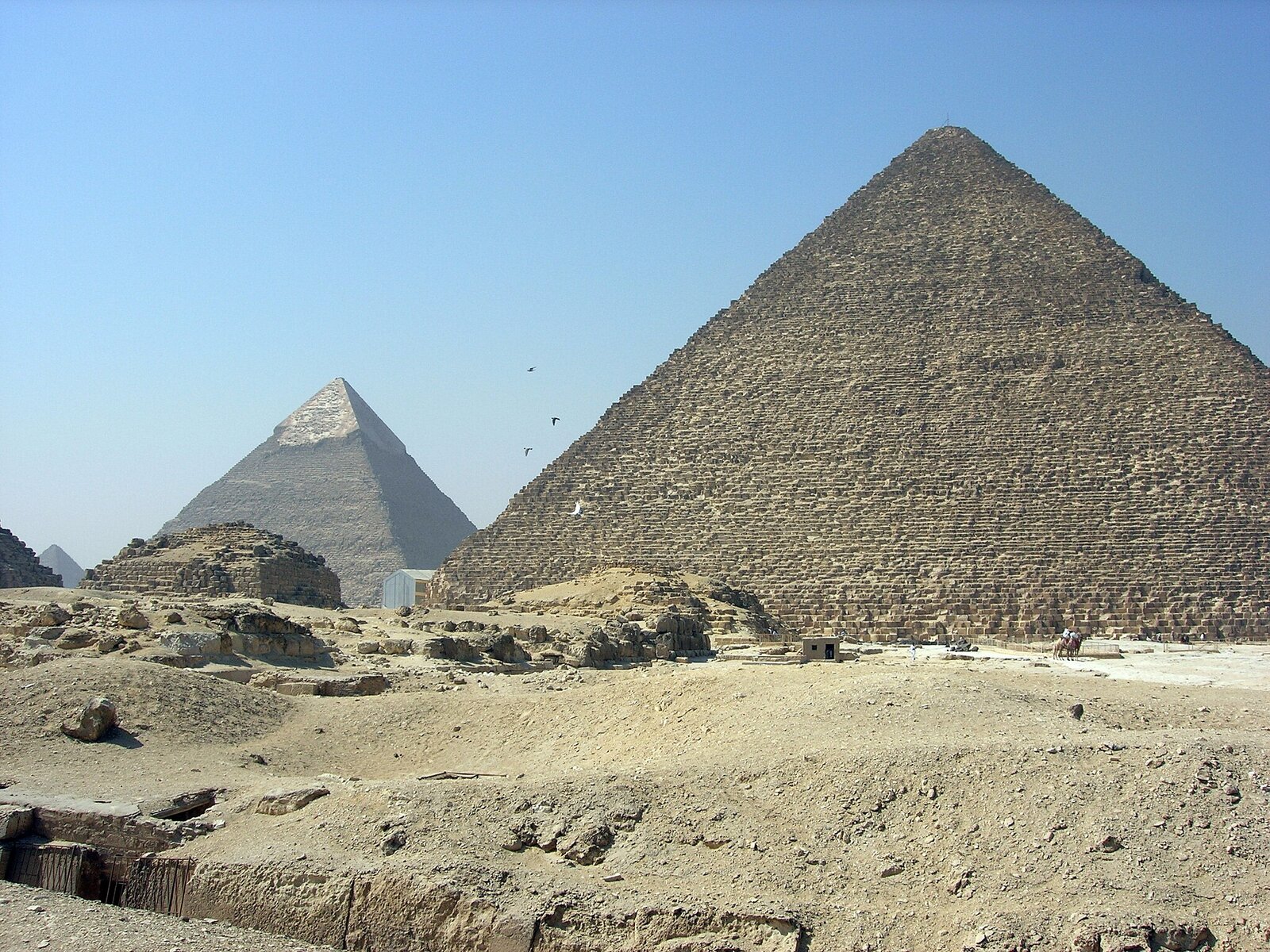Decoding the Pyramid: What Its Name Means in Greek and Ancient Egyptian
Source: GreekReporter.com

In English, the impressive monuments built by the ancient Egyptians at Giza are called ‘pyramids’. Where does this word come from? What does it mean in ancient Greek, and what does this reveal about the pyramids themselves? Furthermore, what did the ancient Egyptians themselves call them?
The origin of the word ‘pyramid’
The modern English word ‘pyramid’ has a long and relatively stable history. It originates from the French ‘pyramide’, which, in turn, comes from Old French ‘piramide’ in the twelfth century CE.
This Old French word was borrowed directly from the Latin ‘pyramides’. Interestingly, this Latin word is the plural. The singular in Latin is ‘pyramis’. However, when the word was borrowed into Old French, the plural was used for the singular, with the ‘s’ removed from the end.
Going back even further, the Latin word for pyramid originally came from ancient Greek. In the Greek language, the singular was ‘pyramis,’ identical to the Latin. The plural, meanwhile, was ‘pyramides’, again, just like Latin.
What does this mean in ancient Greek?
What is the actual etymology of this word in ancient Greek? That is, what did their ancient word for a pyramid mean? Interestingly, there is much debate surrounding this issue. Some scholars argue that it comes from the word ‘pyros’, meaning ‘wheat’.
The reasoning behind this is that this word for wheat led to the word ‘pyramis’ being used for a certain type of cake made from wheat. We see this usage as early as the writings of Ephippus, who lived during the fourth century BCE. According to this theory, the Egyptian pyramids received their name due to their resemblance to the shape of a cake.
However, according to one scholar, a crucial problem with this theory is that the shape of those wheat-based cakes is unknown. Therefore, their name, derived from ‘pyros’ (wheat), might have a completely independent origin from the name of the Egyptian pyramids.
Another theory suggests that the term “pyramis” may originate from the root “pyr” (πῦρ), linked to grain, combined with “amis” (αμίς) derived from the verb “amaō” (ἀμάω), meaning to reap or to gather. This interpretation implies that the ancient Greeks may have understood the pyramids as large storage structures or granaries used for collecting and preserving grain.
The last theory suggests that the ancient Greek word for the pyramids derives from the word for fire, which is ‘pyr’ in Greek. Ancient Historian Ammianus Marcellinus states, “Some derive the word pyramís from pyr (fire), because of its shape tapering to a point, like that of a flame.” However, this theory lacks substantial scholarly support.
Does the Greek word for the pyramids have an ancient Egyptian origin?
A theory that has some favor among linguists is that the Greek word for the pyramids ultimately comes from ancient Egyptian.
One possibility is that the word comes from the Egyptian phrase ‘pr-m-ws’. This phrase is attested as early as c. 1550 BCE. It appears in a manuscript known as the Rhind Mathematical Papyrus. The phrase refers to the height of the pyramid, not the pyramid itself.
Although this phrase was associated with the pyramids, it could conceivably have come to be used to describe the structures themselves. Whether this is plausible or not is debatable.
The ancient Egyptian word for the pyramids
If ‘pr-m-ws’ was not the Egyptian word for the pyramids themselves, then what did they call them? The ancient Egyptian word for ‘pyramid’ was ‘mr’. This is sometimes rendered as ‘mer’ or ‘mir’.
The origin and meaning of this Egyptian word is unknown. However, many scholars believe that it may originally have meant ‘heap of stones’. Others believe that it may have meant ‘tower’, while others believe that it meant ‘high place’.
In any case, there is general agreement that the ancient Egyptians used this word, ‘mr’, to refer to the pyramids themselves, and not to the geometric concept of a pyramid shape.
Could this word have been the origin of the ancient Greek ‘pyramis’? Some linguists believe so. They propose that this word went through a process known as metathesis, where the order of the letters in a word is swapped around.
In this case, the suggestion is that the word ‘mr’ was altered to ‘rm’. There is reason to believe that the speakers of ancient Coptic in Egypt would have placed a ‘p’ before this, producing ‘piram’ or ‘phram’. The ancient Greeks could then have adapted this into ‘pyramis’.
Place of ascension
Some researchers and Egyptologists link the Egyptian root mr (also written as mer) to the meaning “to ascend” or “to rise.” This connection is made because, in various ancient Egyptian texts, mr derivatives are used to describe upward movement, especially in a spiritual or symbolic sense. For example, the king’s soul is often depicted as rising or ascending to join the sun god Ra or transform into a divine spirit.
Based on this linguistic root, some scholars suggest that the Egyptian word for pyramid may reflect the pyramid’s function as a place of ascension. The structure symbolized a stairway or gateway through which the deceased pharaoh’s spirit could ascend to the heavens. This theory is supported not only by the linguistic evidence in the root mr itself but also by its consistent use in religious and funerary texts, where the concept of rising and transformation after death is central.
While an interesting theory, this is highly speculative. Appropriately, given all the mysteries surrounding the Pyramids of Giza, the very origin of their name is far from clear.
The original article: belongs to GreekReporter.com .
